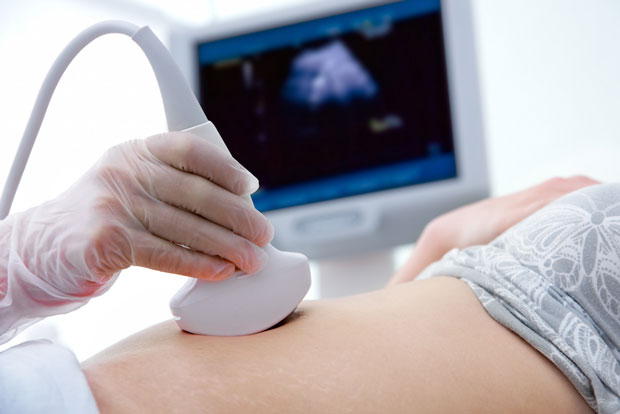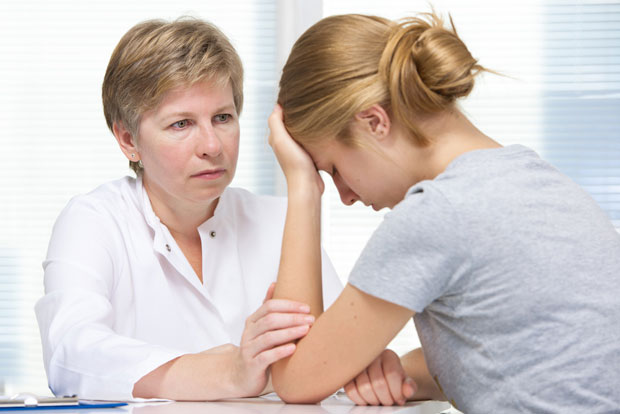An ectopic pregnancy is a serious complication of pregnancy that occurs when a fertilized embryo attaches outside of the uterus, most often in the fallopian tube. For this reason, it is sometimes also referred to as a “tubal pregnancy,” although in very rare cases an ectopic pregnancy can occur on the cervix, ovary, or elsewhere in the abdomen.
Ectopic pregnancies are a relatively uncommon condition that affects between 1% and 2% of women of reproductive age. Unfortunately, in the case of an ectopic pregnancy, the embryo is not viable since embryos cannot survive outside of the womb. If left untreated the condition can cause severe damage to reproductive organs and even become life-threatening.
Causes of Ectopic Pregnancy
There are multiple factors that may cause an ectopic pregnancy. Anatomical abnormalities of the fallopian tubes and other reproductive organs are a common cause, as is inflammation or infection of one or both of the fallopian tubes.

Risk factors that may raise an individual’s chances of having an ectopic pregnancy:
- A history of Pelvic Inflammatory Disease (PID) or infection of the fallopian tube (Salpingitis)
- Endometriosis
- A personal history of Sexually Transmitted Diseases (STDs), e.g. Chlamydia or Gonorrhea
- Smoking
- Previous cases of ectopic pregnancy
- When a woman is over the age of 30
Despite the fact that there are underlying medical conditions that can contribute to an ectopic pregnancy, it is important to know that doctors are not always able determine why the condition has occurred.
Symptoms of Ectopic Pregnancy
Initially, the symptoms of an ectopic pregnancy are not distinct from those that characterize the first stages of pregnancy, such as a missed period, breast tenderness, nausea, and fatigue. However, as the ectopic pregnancy progresses, adverse symptoms increase. Severe abdominal pain (especially on one side), vaginal spotting or bleeding, diarrhea, dizziness, fainting, and vomiting are frequent indicators of ectopic pregnancy.
Be aware that not all women will experience every one of these symptoms in the case of an ectopic pregnancy, but women who are suffering from any of these ailments should contact their doctor as soon as possible.
How to Diagnose Ectopic Pregnancies
Ectopic pregnancies can be diagnosed by a health care provider. Pelvic exams, ultrasound, and blood tests are common methods of diagnosis. Once diagnosed, the condition is treated with either medication or surgery.
Ectopic Pregnancy Treatment is Urgent
It is absolutely crucial that a woman suffering from an ectopic pregnancy receive immediate medical treatment. The best and safest medical outcomes are a result of early medical intervention, even though the ramifications of an ectopic pregnancy can be emotionally and physically difficult. If there is a delay of treatment, the ectopic pregnancy can cause irreversible damage to the reproductive organs which can affect future fertility. If left untreated, ectopic pregnancies will cause the fallopian tube to rupture and threaten the life of the woman.
Coping with the Loss of an Ectopic Pregnancy
 An ectopic pregnancy is often a very personal and deeply felt emotional trauma. The loss of an ectopic pregnancy can feel similar to the pain of a miscarriage, with additional feelings of fear, anxiety, and sadness. Sometimes, feelings of grief can increase as the initial physical symptoms wane, and the emotional impact of an ectopic pregnancy can persist for months afterwards.
An ectopic pregnancy is often a very personal and deeply felt emotional trauma. The loss of an ectopic pregnancy can feel similar to the pain of a miscarriage, with additional feelings of fear, anxiety, and sadness. Sometimes, feelings of grief can increase as the initial physical symptoms wane, and the emotional impact of an ectopic pregnancy can persist for months afterwards.
For many people, it is important to go through a mourning process after an ectopic pregnancy. Women who have suffered from the condition should understand that their grief is valid and, as with any loss, it will take time to heal both physically and emotionally.
Many people who are coping with difficult and complex feelings after an ectopic pregnancy find meaningful support from in-person or online community groups. Counseling may also be a helpful option to help women and their partners heal after such a painful life event.
Conceiving Again after Ectopic Pregnancy
In many cases it is still possible to conceive after an ectopic pregnancy and the likelihood of successful subsequent pregnancies depends on the specifics of each individual case. For example, if reproductive structures were damaged or had to be surgically removed during an ectopic pregnancy, fertility rates can be lower. Nevertheless, many women do go on to conceive once their bodies have healed.
While it is possible to suffer successive ectopic pregnancies, reoccurrence is relatively rare. For women who have endured fertility issues or multiple ectopic pregnancies, In Vitro Fertilization (IVF) may be a safer option to consider. Women who wish to get pregnant after such fertility issues should consult with their obstetrician regarding which options might be best for their particular situation.
Finding Hope & Healing After an Ectopic Pregnancy
An ectopic pregnancy is a rare but serious condition that requires immediate medical attention, but it is also often experienced as a profound personal pain, too. Healing both physically and emotionally is an essential part of restoring the full health of women who have suffered ectopic pregnancies. Health care providers, counseling services, and community groups are all valuable resources for people seeking hope and healing after enduring such a loss.
If you have any questions about ectopic pregnancies or are concerned you may be experiencing signs of an ectopic pregnancy, please contact Kansas City ObGyn today at This email address is being protected from spambots. You need JavaScript enabled to view it. or 913-948-9636.
Dr. Crystal M. Newby, MD is a physician at Kansas City ObGyn. She received her medical degree from the University of Missouri - Kansas City School of Medicine. Dr. Newby married her fellow Kansas native high school sweetheart and they have 3 daughters.






